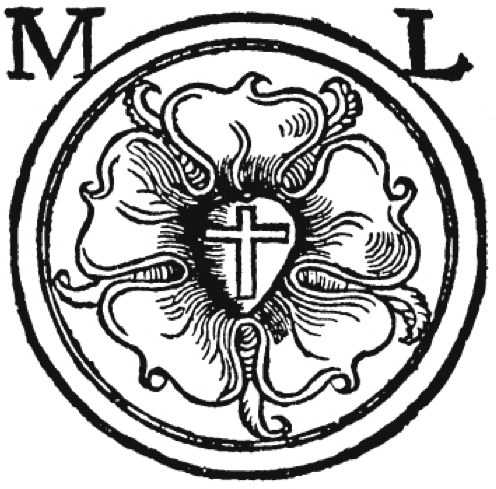The Christian in Community
We aren’t usually told the birth details of most of the saints of Holy Scriptures. Isaac, Jacob, and his twelve sons get some attention because through them God sustained the promise of the Savior—the Seed of Abraham. We hear details about the births of Sampson and Samuel. The book of Ruth provides the backstory leading to the birth of David. We are given some details of the circumstances leading to Solomon’s birth (David and Bathsheba). All of these births revolved around the ancestors of Christ or those who served the promise of His coming. In the New Testament we are given beautiful details about the births of John the Baptist and Jesus.
The birth of Moses in Exodus 2 is remarkable first in that he survived it. He was not put to death by the Pharoah’s slave regime. But the more important point is that through Moses God created, or formed, the promised descendants of Abraham into His “treasured possession…a kingdom of priests and a holy nation” (Exodus 19:5, 6). The spiritual, education-al, and personal gifts required for Moses to lead God’s church and nation were provided by God in a wonderful way.
Moses was given a Christian education. After being rescued in his little basket boat, he was returned to his mother to nurse and bring up through childhood. His pious mother undoubtedly taught him God’s Word, what would eventually be written down by the Holy Spirit’s inspiration as the book of Genesis. Moses grew up with Adam and Eve, Noah, Abraham, Isaac, Jacob and the twelve patriarchs as his examples of faith and holiness. He recalled their deeds and the adversity they suffered and believed the same divine promises that they believed.
Moses then received a classical Egyptian education. Egypt was a great repository of human wisdom and natural law long before the Greeks and Romans (under the purification and blessing of Christianity) became the font of Western Civilization. Moses was educated in Egypt’s royal academy, as a prince of the kingdom. He learned to read and write, memorized the literature and proverbs of Egypt, gained understanding of math and the sciences, acquired Egyptian law and the manners of court, and learned their art and poetry. His writing of God’s Word in Hebrew used letters akin to Phoenician, so he was undoubtedly taught the art and culture of that seafaring people.
The formation of Moses as shepherd and leader of God’s people included the trial of defending a Hebrew slave from a cruel Egyptian task-master and then fleeing into a decades-long exile. Some 40 years in the wilderness as a shepherd working for his father-in-law prepared him for a return to leadership in Egypt at the age of 80. In Exodus 3 and 4 God called Moses as His prophet and pastor to His people.
God raises up faithful pastors and laymen to provide leadership in His church and in His Christian homes. We thank God for these men and we organize our lives and finances to provide for the schooling they need for this leadership. Like Moses, they need the education and discipline—paideia—enriching them with gifts of knowledge, wisdom, character, and virtues needed to lead God’s precious and holy people. When Jesus began His ministry in Israel, He observed that God’s people “were harassed and helpless, like sheep without a shepherd” (Matthew 9:36). His answer to this problem was two-fold: He commanded us to pray for faithful pas-tors, and He started a seminary for twelve men, to whom He gave the world’s best and most intense education and discipline for three years.
We likewise commit our prayers, support, and resources to the education of the next generation of our Lutheran children, and especially those who will lead in church and home and society. From home to school, and where needed, from college to seminary, we follow God’s example in educating Moses and we obey His commands for the sake of every godly vocation. “Bring them up in the discipline (paideia) and instruction of the Lord” (Ephesians 6:4).
Here is the outcome for which we pray and labor: “All Scripture is breathed out by God and profitable for teaching, for reproof, for correction, and for training (paideia) in righteousness, that the man of God may be complete, equipped for every good work” (2 Timothy 3:16–17).
REFORMATION 500

It is no secret that the marriage of our young people is the single most momentous decision they make for their life. When they choose a spouse, they are choosing the man or woman that will be either their help or hindrance in their Christian faith. They are choosing their children’s father or mother and their grandchildren’s grandfather or grandmother. The man or woman they choose to marry will either teach their children the doctrine and faith of Scriptures and be for them the example of Christian piety, or else will abdicate that duty, undermine the Christian faith, turn them over to non-believers or anti-Christians to educate, and in any case will set an evil example of life and character. Their choice may lead to the salvation or damnation of their children.
God teaches us that He alone joins the man and woman together in marriage. Young people should be reminded that their choice in marriage is irrevocable. They should choose well because God forbids divorce, adultery, or desertion: “What God has joined together, let man not separate” (Matthew 19:6). And if that were not enough, we might remind the young people that the economic future of the new family will be directly tied to staying married, living wisely and frugally, being industrious and hardworking, and the like. In such a momentous decision, God intends the wise guidance and consent of parents to be joined to the humility and consent of the young people who are seeking a spouse.
Toward the end of April, 1524, Luther addressed this important matter in a short pamphlet with a long title, That Parents Should Neither Compel Nor Hinder the Marriage of Their Children, and That Children Should Not Become Engaged Without Their Parents’ Consent (AE 45.385 –393).
In his introduction Luther wrote, that “the estate of marriage” has kept him “busier…than with my entire cause apart from it.” He continued, “If there were nothing else to suggest that the estate of marriage is a godly estate this fact alone should be enough to convince you, namely, that the prince of this world—the devil—sets himself against it in so many ways to resist it hand and foot and with all his strength; indeed, that fornication is not diminishing but on the increase” (385). How much worse it is in our day!
Luther first instructed parents, who have been given authority over their children not “for destroying” but rather “for building up” (compare 2 Corinthians 10:8). Parental authority is great and should not be undermined or denied by civil government or the church, but it has its limits. Luther wrote that “parental authority…does not extend to the point where it can wreak damage and destruction to the child, especially to its soul. If then a father forces his child into a marriage without love, he oversteps and exceeds his authority. He ceases to be a father and becomes a tyrant who uses his authority not for building up—which is why God gave it to him—but for destroying. He is taking authority into his own hands without God, indeed, against God” (386).
He then addressed the children: “Second…a child should not marry or become engaged without the knowledge and consent of his parents” (389). Here the young people should honor their parents according to the Fourth Commandment by obtaining the blessing and consent of their parents to marry. Luther also reminded parents of their duty here, “Parents should understand that a man is created for marriage, to beget fruit of his body (just as a tree is created to bear apples or pears), unless his nature is altered or hindered by God’s supreme grace and a special miracle [that is, to remain single and chaste]. Therefore, they are in duty bound to assist their children to marry, removing them from the perils of unchastity” (390–391). And while “the father also has the authority to prevent his child from marry-ing this one or that one…, he is in duty bound to get his child a good mate who will be just right for him, or who seems to be just right for him” (392). Parents should help their children find a godly spouse.
The Holy Spirit instructs unmarried Christians to marry “in the Lord” (1 Corinthians 7:39). In any case, Christians are not to be “unequally yoked with unbelievers” (2 Corinthians 6:14). They should not deliberately enter marriage with someone who is not unified with them in faith and confession. There is far more at stake here than momentary or even lifetime happiness. God gives happiness to Christians in due time. And happiness in marriage is far more likely when the Christian marries a fellow Christian who shares both the faith and the piety given in Holy Scriptures. What is at stake in the end, however, is the fruit of Christian children who grow up to be Christian adults, for the great blessing of the household, the church, and civil society.

